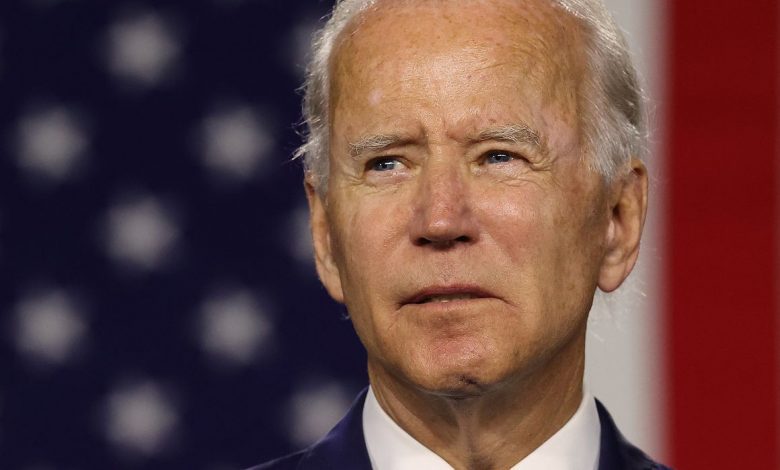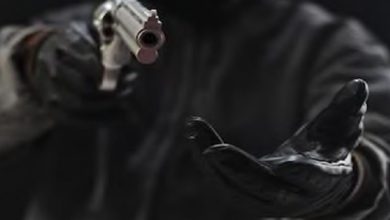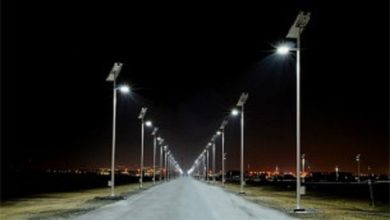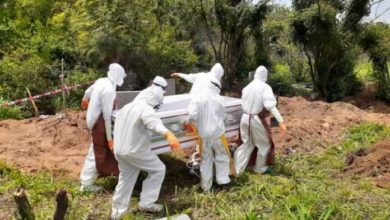Pressure on Joe Biden in first US Presidential Debate

Democratic presidential candidate Joe Biden is facing pressure as he squares off with the incumbent Donald Trump in the first 2020 presidential election debate on Tuesday evening.
The debate, held in Cleveland Ohio, is the first of three debates ahead of the elections on November 3.
The debate will run for 90 minutes, include six 15-minute segments, with no breaks for commercials and there will be no opening statements with the first question going to Trump.
Addressing more than 225 global journalists Monday on the role of presidential debates, Professor of Communication at the University of Missouri, Mitchell McKinney, said the tallest order on tonight’s debate may be on the former vice president, Biden.
“In terms of some ways, it’s his debate to lose. The president has set up these expectations that somehow Biden’s not going to perform well and not going to make it through the debate,” he said.
“Then now, more recently we hear from President Trump quite often saying, if Biden does perform well, it means something illicit, like he’s taking drugs so there’s all this attention and focus on Biden and how he will perform.”
Prof McKinney, who as Director of the university’s Political Communication Institute has been studying US presidential debates for much of his career, said these were important for voters and are high stakes for the candidates, looking at the effect they might have on the outcome of the election, or the perception on the mind of the voters based on the candidate’s performance.
“It is the only moment in the US, from primary seasons and two and half years long campaign, where major party candidates come together, side by side. It is an opportunity to compare candidates, where voters expect to hear credible forms of campaign communication, as opposed to adverts, controlled speeches, media appearances on partisan media,” he said.
According to Prof. McKinney, tonight’s debate was high stakes for Biden, especially if he commits gaffs, blunders, stumbles or cannot recall certain information.
“That would feed into and solidify the narrative that’s being created. On the other side of the debate stage, President Trump has said himself he’s not spending time doing the traditional preparation. I think what we would see is the typical Donald Trump, the one we see on his daily supposed coronavirus briefings and that’s just a stream of consciousness, an attack, name calling and taunting,” he said.
“In some way I can’t imagine much of what the president could say or do that we would be shocked or even making claims that are not actual. This is what we have come to expect in that regard, Trump seems to have inoculated the Americans, even the press in terms of well look there’s another whopper. So I’m not sure how he could be seen as losing the debate but for Joe Biden that’s a different story.”
On the debate stage, voters receive credible communication driven largely by the fact that candidates are not in control of the message.
“They show up without notes, no teleprompter, no aids around them and they don’t know what questions will be put to them. Therefore in that moment voters see how they respond to a journalist’s question, how they respond to one another when they are attacked and how they react to one another,” Prof McKinney said.
Prof McKinney said the question to be debated, no matter the specific issue questions or topics raised, is whether or not the incumbent president should be returned to office.
“On this front, again no matter the specific question, the incumbent president must convince voters that they’ve handled the issue effectively, and the challenger must make the case that the incumbent president has not addressed matters well and does not deserve four more years.
“With Donald Trump, we may see attempts to try and turn the tables on Joe Biden (make the debate about Biden, his fitness for office, attacking the Obama-Biden administration, perhaps even Biden’s son). Here, if Donald Trump is unable to defend his record and actions, such as on Covid-19, he’ll need to deflect and try to assign blame to others. We’ll see if he’s successful in doing this, or if Biden keeps the focus on Donald Trump’s record,” he said.
The political analyst noted Trump was very good at attacking, creating conflict and drama, and often blaming others — and this strategy may divert attention away from matters he may not wish to address in the debate.
“Joe Biden has a much less aggressive style, often expressing empathy, care and concern for citizens and their struggles in life. The contrast between these two individuals, particularly their communication styles, is stark. Biden may run the risk in these debates of seeming overwhelmed or too ‘low energy if he is not sufficiently strong or able to respond aggressively to Donald Trump,” Prof McKinney said.
Fox News host Chris Wallace will be the moderator of tonight’s debate.
Although the Fox News channel has fawned in its coverage of Trump for the past four years, Wallace is seen as a relatively independent, straight journalist.
He was in charge of selecting the debate’s six topics, and they were announced by the Commission on Presidential Debates last week which are: Records of both President Trump and former vice-president Joe Biden, The Supreme Court, Covid-19, the economy, Race and violence in cities and the integrity of the election.
Prof. McKinney’s briefing on the role of the US presidential debate was made possible through a virtual reporting tour of the United States and the American electoral process sponsored by the US Department of State’s Foreign Press Centres.
More than 225 journalists across the globe are taking part under an eight-week coverage that will include on-the-record Press briefings with political scientists, election experts, analysts, and pundits, and exclusive access to interviews, video and still photography from key battleground states across the US.






